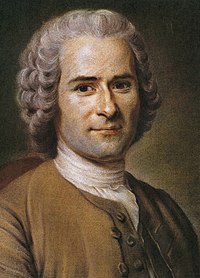
Photo from wikipedia
Abstract This article intends to re-examine Rousseau’s educational theory in the context of the nature/culture opposition. In contemporary discussions on the nature/culture dualism, it has been often stated that his… Click to show full abstract
Abstract This article intends to re-examine Rousseau’s educational theory in the context of the nature/culture opposition. In contemporary discussions on the nature/culture dualism, it has been often stated that his educational theory is based on the assumption that a child is a natural being. However, the author demonstrates that Rousseau was instead committed to a duality of human nature; this influences his educational theory. In his model, human nature consists of a natural and a social side; these two parts are in conflict which seems unsolvable due to the present state of society. A child is regarded as a figure which is open to the future reconciliation of nature and culture. Thus, Rousseau’s model of education is presented not from the standpoint of the present state of society, but from the standpoint of an ideal state which might be built in the future. In addition, the examination of human duality allows one to show that Rousseau’s ideas on civil and private education are closely interrelated.
Journal Title: Educational Philosophy and Theory
Year Published: 2017
Link to full text (if available)
Share on Social Media: Sign Up to like & get
recommendations!